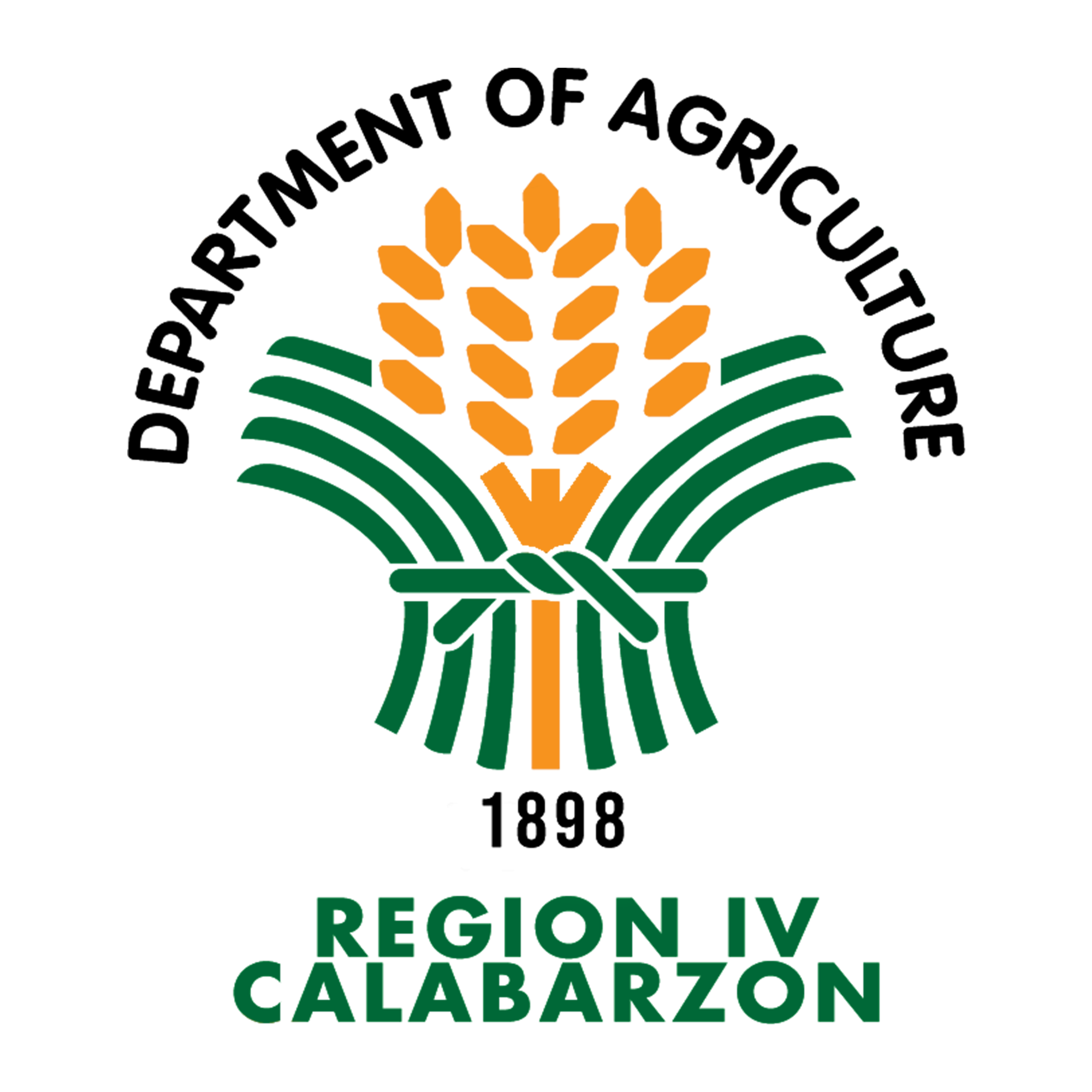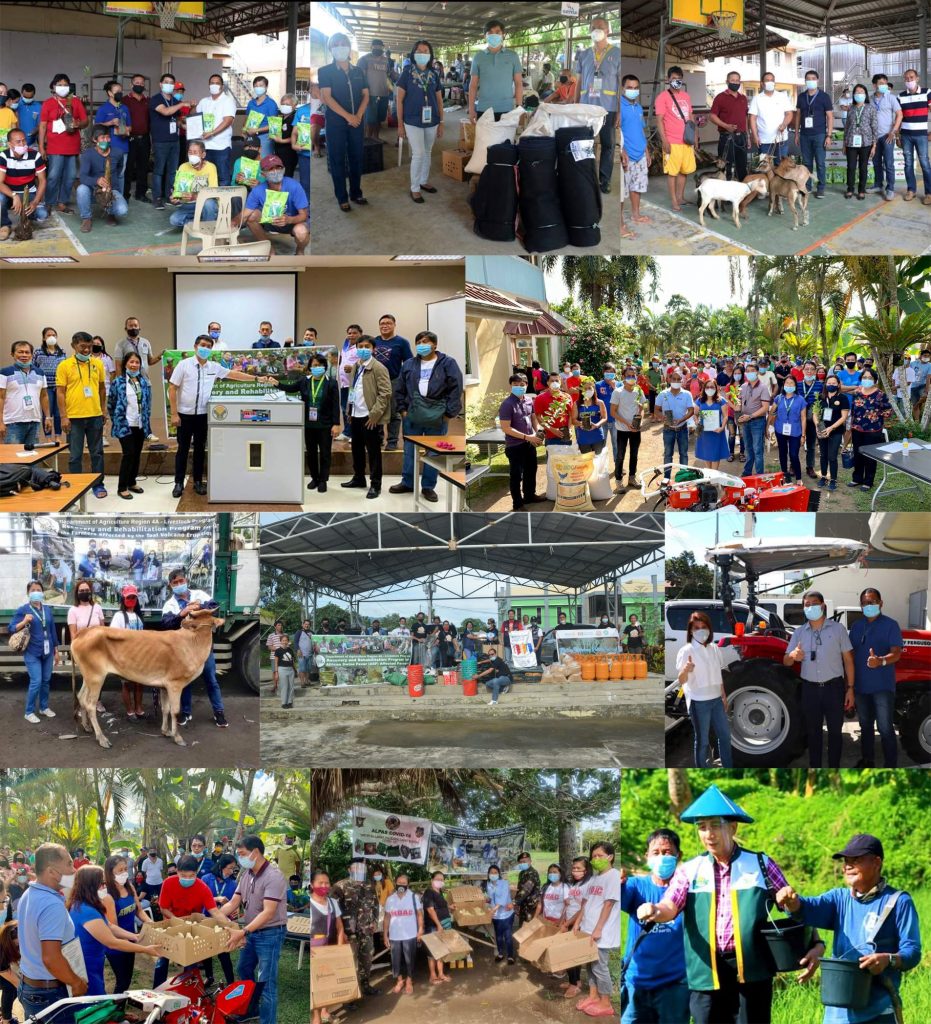Department of Agriculture (DA) Region IV-CALABARZON continues to implement its programs, such as the Rice Resiliency Project (RRP), SUrvival and REcovery (SURE) COVID-19 loan assistance, Recovery and Rehabilitation Program for African Swine Fever (ASF)- and Taal-affected farmers, farm modernization, KAtuwang sa DIwa at GaWA (KADIWA) ni Ani at Kita Project, and monitoring of Fall Armyworm (FAW) and other farm pests and diseases, amid the coronavirus disease pandemic.
Updates on these programs were discussed by the Assistant Regional Director (ARD) for Operations, Mr. Dennis R. Arpia, on a radio interview on August 11, 2020.
For RRP, ARD Arpia said that the objective of this program is to further increase the efficiency of rice production in CALABARZON by 10 percent from its current output of 16 percent. “With the help of DA-PhilRice, we give free, certified seeds to farmers and encourage them to plant these for a higher yield and a significant increase in their harvest and income,” he explained.
Aside from that, the regional office also gives free fertilizers to farmers. ARD Arpia added that, “We have a buy 2 take 2 scheme for inbred rice seed farmers and a buy 2 take 3 scheme for hybrid rice seed farmers.”
He shared that DA’s RRP offers farmers training on modern farming approach to ensure that they can keep up with today’s production targets.
DA has a SURE COVID-19 loan assistance program offering agricultural loans to marginalized and small farmers and fisherfolk (MSFF), and micro and small enterprises (MSEs) engaged in agricultural and fisheries production and other supply chain activities whose livelihoods have been immensely affected by the current pandemic.
Through the DA-Agricultural Credit Policy Council (ACPC) and its conduits, DA CALABARZON helps farmers recover their losses during the COVID-19 pandemic quarantine period by offering them zero percent interest loans that are payable for five or 10 years, depending on the scale of their business.
ARD Arpia stated that this financial support is first-come, first-served and that farmers must undergo an ACPC evaluation. “The Department has secured a large fund for agricultural value chain loans,” he said.
Meanwhile, ARD Arpia has assured that the ASF infestation is being managed properly by the regional office.
As a measure of precaution and early intervention, DA CALABARZON is offering indemnification to hog raisers who are affected or are relatively close to ASF-affected farms. The Department offers P5,000 per pig to be culled as a result of possible ASF infection. According to ARD Arpia, DA CALABARZON can cover up to 20 heads per backyard farm.
The infected farms cannot raise hogs in a while because it must undergo a total disinfection that can last up to two months or more. To ensure that every farmer affected by the ASF receives appropriate and sustainable assistance, the regional office provides alternative livelihoods to the affected farmers. This includes free livestock modules such as poultry, cattle, and goats; and packages for the production of mushrooms that can help them to have a source of income until they can return to their hog raising.
ACPC is also offering SURE assistance program to the affected backyard hog raisers.
On the other hand, ARD Arpia highlighted the ongoing Taal Recovery and Rehabilitation Program for Taal-affected farmers. He said that this volcanic eruption earlier this year had a significant impact on farmers in the region, particularly in the provinces of Cavite, Laguna, and Batangas. As a result, the Department continues to deliver farm inputs, and farm machinery and equipment across the region to help those affected farmers recover their livelihoods.
ARD Arpia also discussed how the DA is guiding farmers towards agricultural modernization. He shared that the farmers welcomed this move to farm mechanization by saying, “Through DA-PhilMech, under the Rice Competitiveness Enhancement Fund, tractors, transplanters, rice seeders, rice reapers, and other machinery and equipment had already been delivered to be used from land preparation to harvesting.”
The implementation of KADIWA ni Ani at Kita Project in the region was also talked over, being the marketing arm of DA CALABARZON to help farmers directly bring their produce to consumers, with little or no assistance from traders, so that farmers can earn more.
“This project is like hitting two birds with a stone. This will protect farmers from being underpaid and consumers from marked up prices,” he emphasized.
In addition, ARD Arpia also tackled the actions of the regional office to combat agricultural disruption and crop infestation caused by pests, especially the infamous FAW. The regional office is monitoring FAW infestations closely and extensively through the Regional Crop Protection Center (RCPC).
“The RCPC is a special unit of experts in the field of crop protection. The provinces also have what we call Integrated Pest Management program for pest control,” he guaranteed.
ARD Arpia pointed out that the FAW monitoring teams are aggressive across the region. He also encourages farmers to report to their city or municipal agriculture offices or agricultural technicians when there is FAW manifestation in their crops.
Towards the end of the radio interview, ARD Arpia said that the CALABARZON, as with the rest of the Philippines, is in a difficult time, but this pandemic has shown how relentless the farmers are. The current crisis also shows how agriculture is the backbone of the economy, and without farmers, the Department will not function.
“I am very proud of the CALABARZON farmers for their resilience, commitment, and hard work. Together, we will survive this pandemic,” he emphasized.
The ARD also expressed his appreciation to the provincial, city, and municipal agriculture offices, agricultural program coordinating offices, and other DA local teams for their never-ending support for the Department’s goal of making CALABARZON a food-secure and resilient region. • (MAP, DA-RAFIS)







 All content is in the public domain unless otherwise stated.
All content is in the public domain unless otherwise stated.